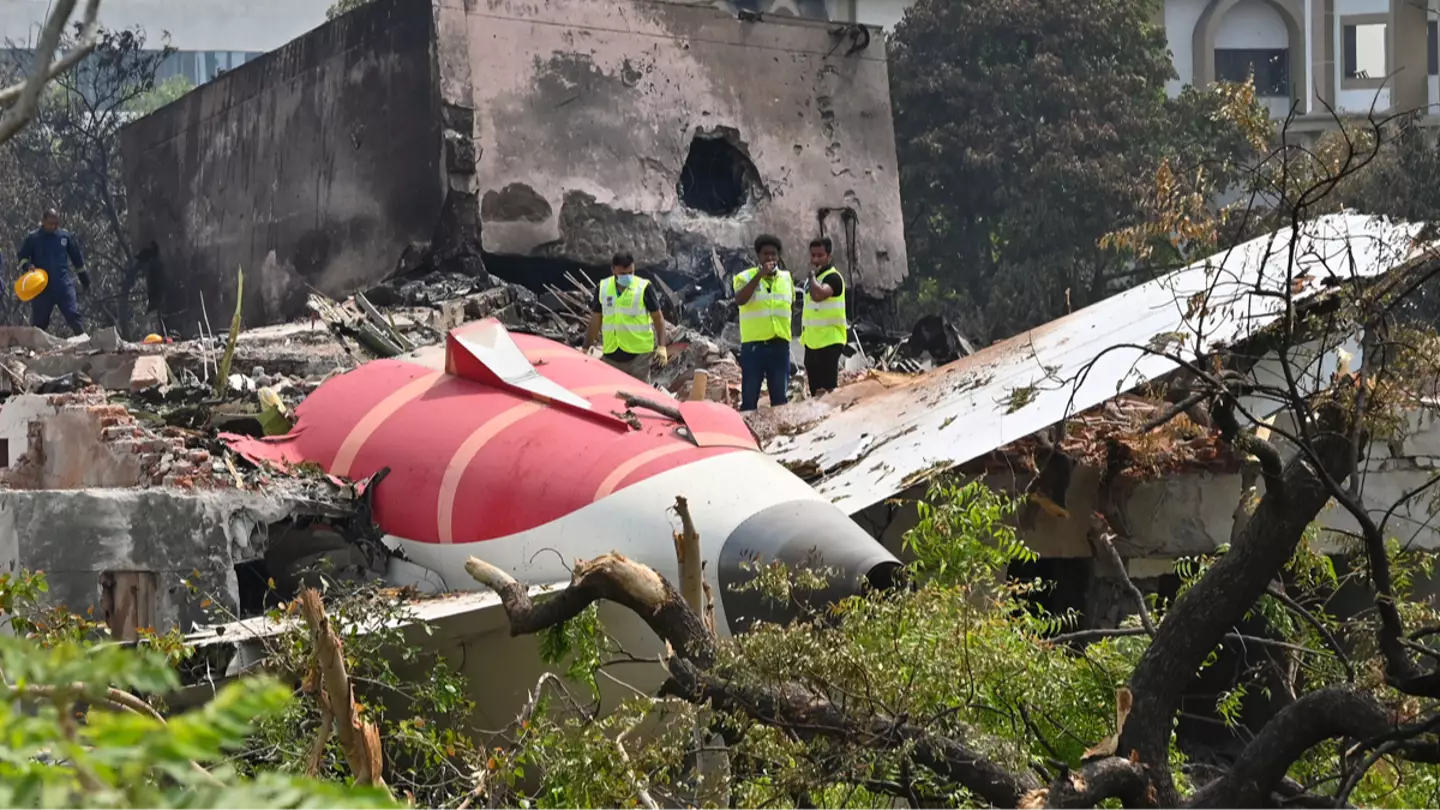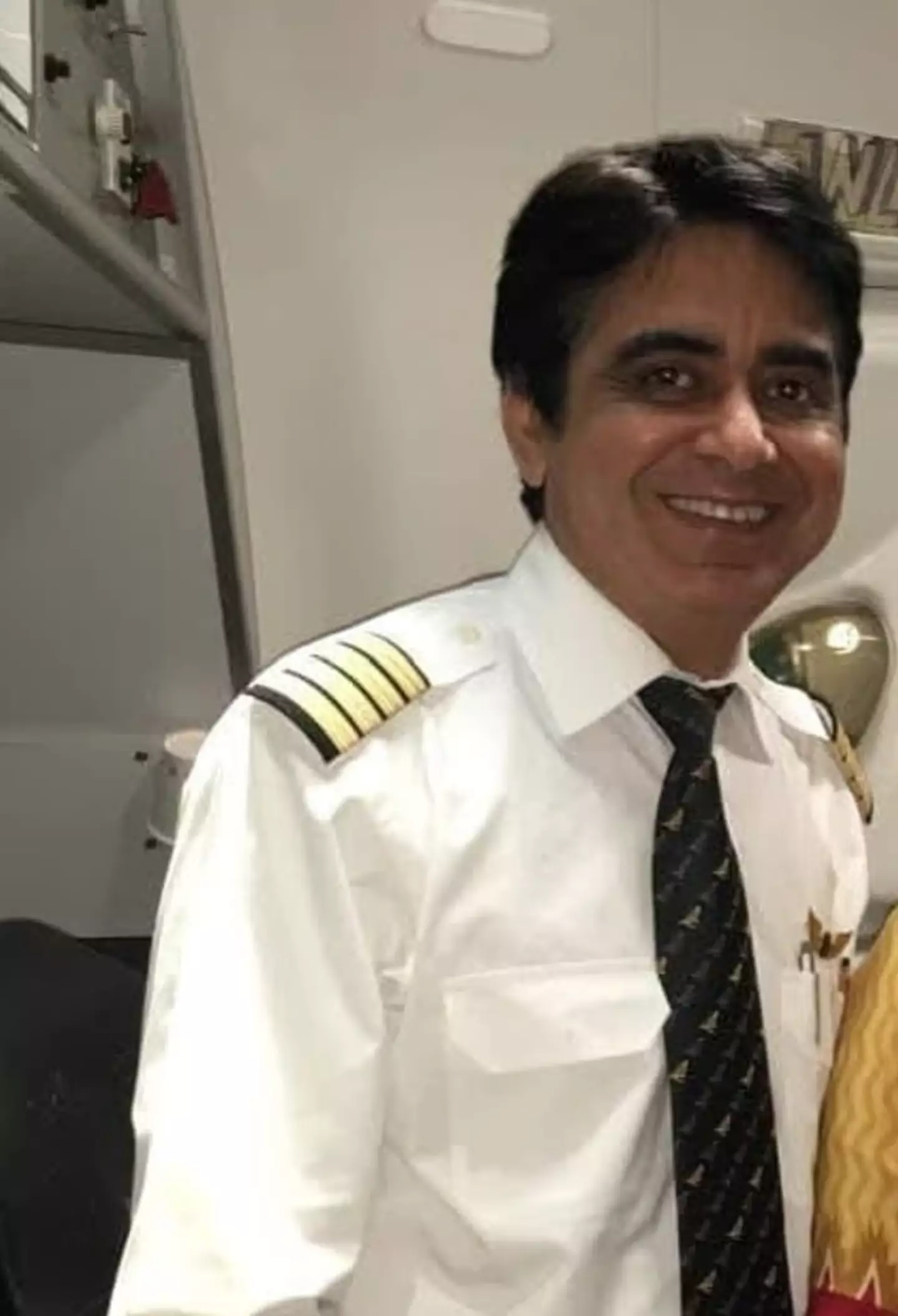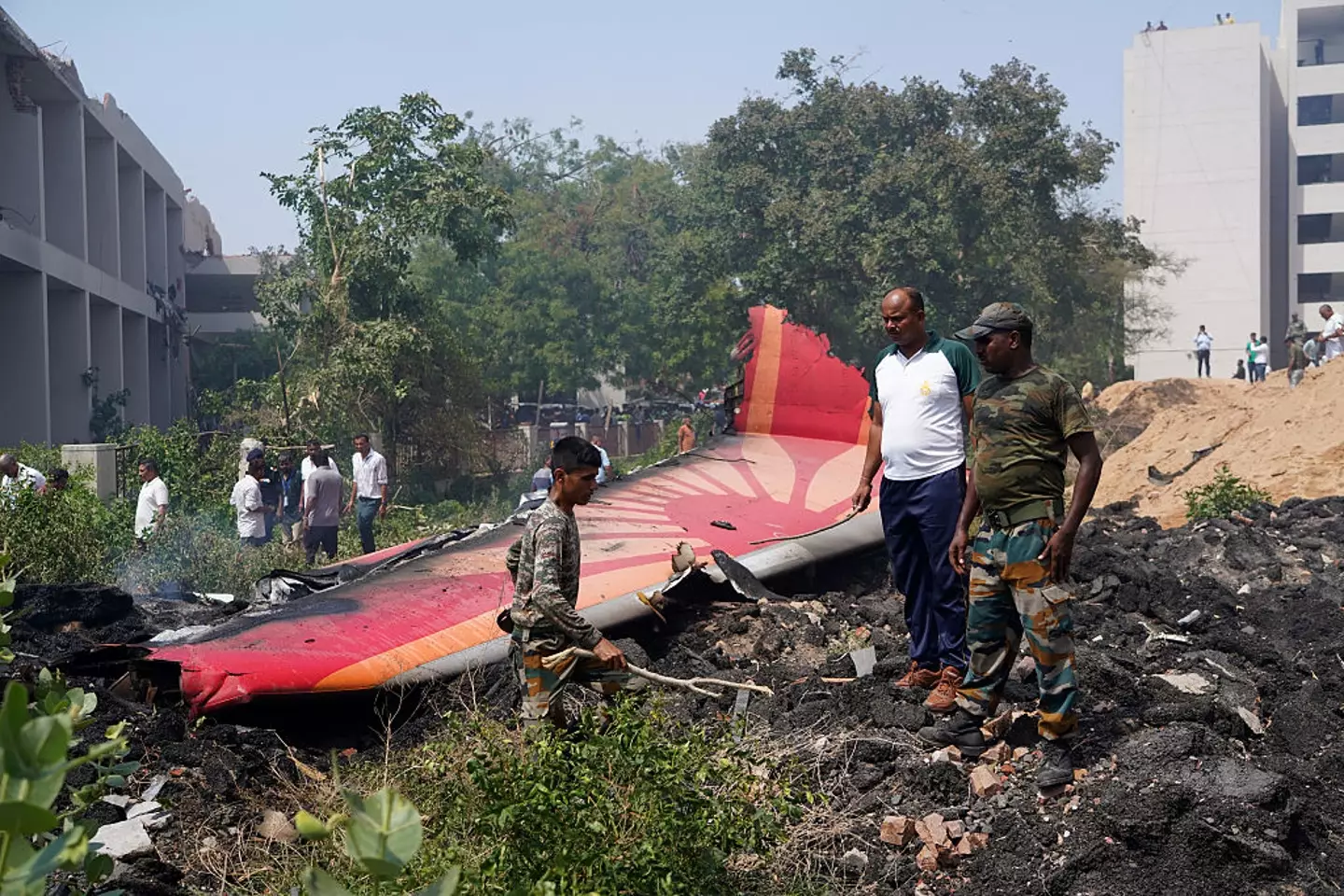
The cockpit audio recording from last month's Air India tragedy is causing quite a bit of tension.
Bound for London Gatwick, Air India Flight 171 crashed just 30 seconds after take-off from Ahmedabad airport.
242 people were onboard when the aircraft plummeted to the ground and smashed into a doctors' accommodation building at the Byramjee Jeejeebhoy Medical College and Civil Hospital.
Only one guy named Vishwash Kumar Ramesh survived the crash, while a further 19 people lost their lives at the college.
Advert
In the subsequent 15-page accident report, key details remain unknown, which is only exacerbating the speculation surrounding what happened.
Despite the possibility of closure hanging on this preliminary report - a full breakdown is expected to be filed in a year or so - investigators, aviation analysts and members of the people are still perplexed.

Seconds after the plane took off, the Boeing 787's fuel control switches turned off, causing a complete loss of power.
One of the pilots - Sumeet Sabharwal was the captain and Clive Kunder was co-pilot - asked the other why he 'did the cut-off', with his colleague claiming he didn't. It's unclear which voice belongs to who right now.
The pair of switches were subsequently returned to their standard inflight position, yet neither engine had managed to regain thrust in time to halt the accident.
Reuters news agency has since reported that 'new details in the probe of last month's Air India crash are shifting the focus to the senior pilot in the cockpit', whilst Italian paper Corriere della Sera's sources claim the Kunder repeatedly asked Sabharwal why he 'shut off the engines'.

In response to this conjecture, India's Aircraft Accident Investigation Bureau (AAIB) highlighted how 'certain sections of the international media are repeatedly attempting to draw conclusions through selective and unverified reporting', which it deems 'irresponsible' as the investigation continues.
Sam Thomas, head of the Airline Pilots' Association of India (ALPA India), told the BBC that 'speculation has triumphed over transparency'.
Meanwhile, an anonymous air accident investigator from Canada believes that if one of the pilots 'operated the switches unwittingly or unconsciously', then it's 'understandable that they would later deny having done it'.
He added: "But if [the second pilot] operated the switches deliberately and with intent, he may have posed the question knowing full well that the cockpit voice recorder would be scrutinised, and with the aim of deflecting attention and avoiding identification as the one responsible.
"Even if the AAIB is eventually able to determine who said what, that doesn't decisively answer the question 'Who turned the fuel off?' We may even never know the answer to that question."
Ex-NTSB managing director Peter Goelz wants the AAIB to release a cockpit transcript with identified voices.
"If any malfunctions began during take-off, they would be recorded in the Flight Data Recorder (FDR) and would likely have triggered alerts in the flight management system - alerts the crew would almost certainly have noticed and, more importantly, discussed."
Ohio State University's aviation expert Shawn Pruchnicki noted: "We have to be cautious because it's easy to assume that if the switches were turned off, it must mean intentional action - pilot error, suicide, or something else. And that's a dangerous path to go down with the limited information we have."
